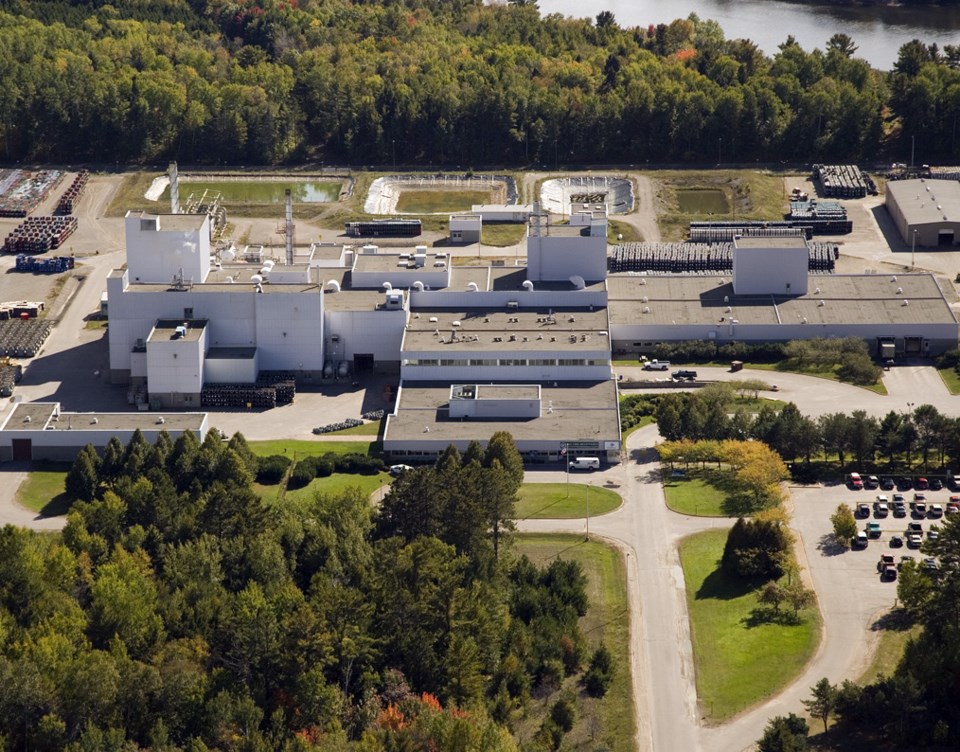The Canadian Nuclear Safety Commission (CNSC) has approved a 10-year operating licence for the Cameco uranium refinery in Blind River.
The official approval came on Feb. 17 and is being welcomed by plant general manager Terry Davis and its almost 150 employees.
“We are very pleased with the Canadian Nuclear Safety Commission’s decision to renew our licence for a 10-year period,” Davis said.
“As we had requested, there are no changes to the licence, including the provision to increase capacity to 24,000 tonnes annually (of uranium trioxide up from its current level of 18,000 tonnes)," he said. “We do not anticipate any changes to our current operation at present. However, retaining the flexibility to modify the plant to produce 24,000… should the market call for increased production, was important as we see potential opportunity for growth as the world transitions to clean energy.”
The local refinery is the largest in the world processing uranium ore. After the material is processed at Blind River it undergoes further refining at the Cameco facility in Port Hope.
In its release, the CNSC stated in part, “Today, the Canadian Nuclear Safety Commission (CNSC) announced the Commission’s decision to renew the Class IB nuclear fuel facility licence held by Cameco Corporation (Cameco) for its Blind River Refinery, located south of the Mississauga First Nation community and approximately five kilometres west of the Town of Blind River in Ontario. This decision follows a public hearing held virtually on Nov. 24. The renewed licence authorizes Cameco to continue operating the Blind River Refinery.”
The company began its licence renewal process in September 2020 with Cameco’s application to the CNSC.
“In making its decision, the Commission considered oral and written submissions from Cameco, CNSC staff and 50 intervenors. The CNSC also made participant funding available through its Participant Funding Program and invited interventions from Indigenous Nations and communities, members of the public and stakeholders. Two requesters received participant funding to assist with their interventions.
After reviewing all submissions, the Commission concluded that Cameco is qualified to carry out the refining activities that the renewed licence will authorize. It also concluded that Cameco will make adequate provision for the protection of the environment and the health and safety of persons.
The record of decision is available on request to the Commission Registry at [email protected]. The decision will also be posted in both official languages at nuclearsafety.gc.ca at a later date. All submissions, hearing transcripts and the hearing webcast are available on the CNSC website.
The CNSC regulates the use of nuclear energy and materials to protect health, safety, security and the environment; to implement Canada’s international commitments on the peaceful use of nuclear energy; and to disseminate objective scientific, technical and regulatory information to the public. The Commission is a quasi-judicial administrative tribunal set up at arm’s length from government, independent from any political, government or private sector influence.
Mississauga First Nation was among those who raised concerns about the 10-year operational licence renewal application.
The refinery has operated on the site since 1983 when it was owned and operated by a Crown corporation of the Government of Canada. Cameco took over its operation in 1988.
